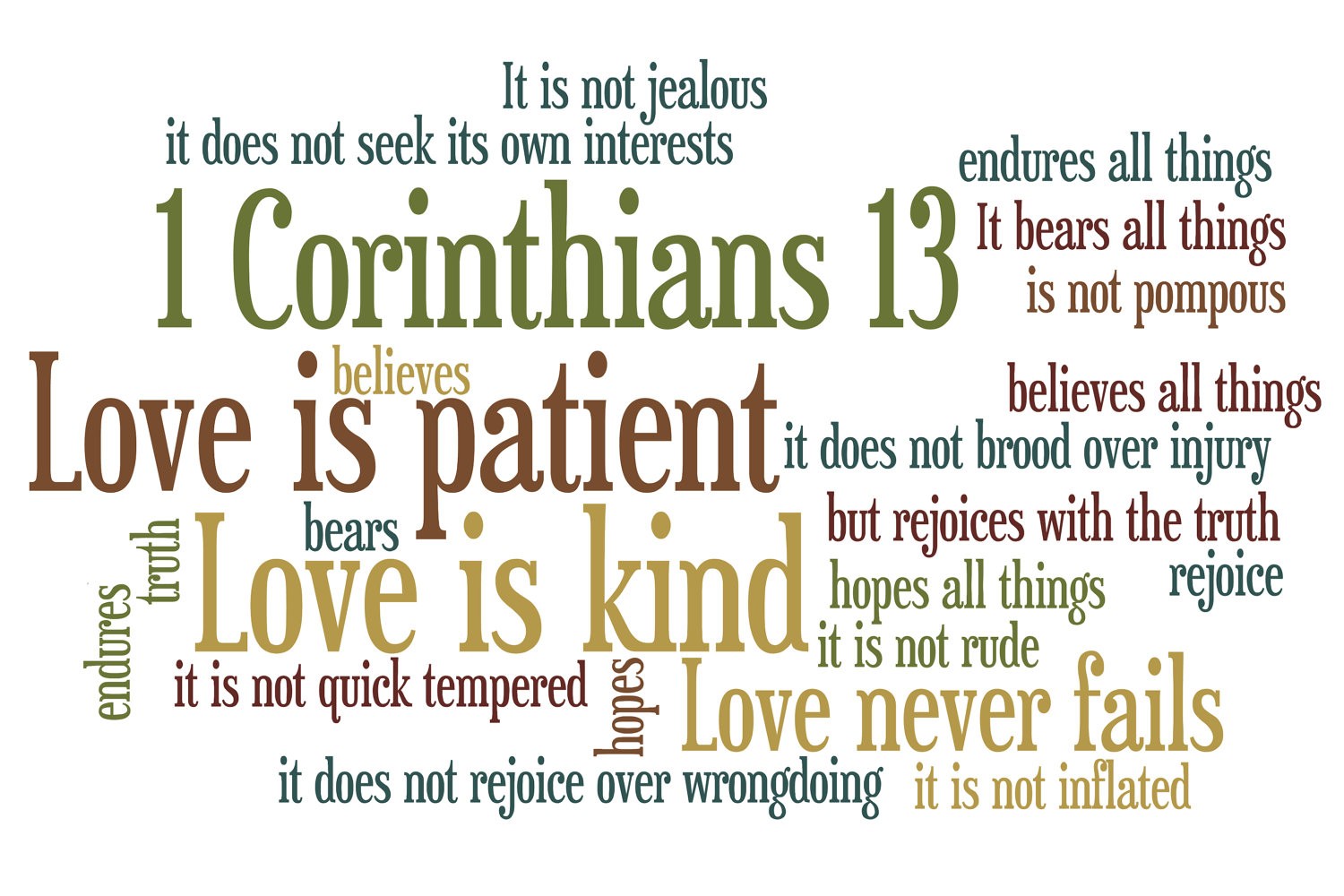BTC Phase 3: Lesson 2
The Free Gift of Grace
In this Lesson, we will continue to explore that which is the “Free Gift,” (Holy Spirit/Grace) given to help us through our soul-transformation process; and we will also examine more fully, the terms we are expected to adhere to and why Grace is so important in meeting those terms.
More facets of The Holy Spirit of Grace…
“For by grace are ye saved through faith; and that not of yourselves: it is the gift of God: Not of works, lest any man should boast.” Ephesians 2:8-9 (KJV)
What is the “Free Gift”: We have already established in BTC 2 that “Grace” is one of the names for “Christ within” and that receiving this “Gift of the Holy Ghost” is represented in the 2nd aspect of our three-fold Baptism. We have also learned, that this “Grace” had been promised for centuries as we see in Old Testament verses such as Ezekiel 36:27; yet, until Pentecost, it had never been received.
“And I will put my spirit within you, and cause you to walk in my statutes, and ye shall keep my judgments, and do them.” Ezekiel 36:27 (KJV).
But have you ever heard the phrase, “Free Gift of Salvation?” If you haven’t yet, you will. But is it true, that “salvation” is the “free gift” being spoken about in the New Testament? Well, though that expression is common in the Body of Christ, it is not exactly what Scripture states. Based on our opening verse from Ephesians 2:8-9, we see that “Grace” is the “Gift,” given “freely” without prerequisite of any “works/deeds” or ability on our part. Or, to put it more exactly, we in our human condition would never be able to “earn” this Gift or “buy” this Gift or “be rewarded” Grace based on our actions or intentions. It is given out of God’s Love for us.
About the purpose of being given the Free Gift of Grace: The Holy Ghost reveals this “Greater He” to us to give us a direct means of communication with God, helping us to get to known Him even more intimately than before. In-so-doing, we have a greater chance of taking on attributes of the Spirit which helps us in becoming more “Christ-like,” because without that proximity, it is hard to stay on track or even be fully aware of our destination in Christ.
Precious Gift Indeed: In the Old Testament, there was a room within the Temple called the “Holy of Holies,” a place which represented the deepest level of communion with God. But it was separated from the people by a very thick curtain and only the High Priest had access to this part of the Temple once per year on the Day of Atonement; this religious official was sent in to represent the prayers of all of the people.
“And thou shalt hang up the vail under the taches, that thou mayest bring in thither within the vail the ark of the testimony: and the vail shall divide unto you between the holy place and the most holy.” Exodus 26:33 (KJV)
We of the Body however, are able to experience what generations upon generations only dreamed about but what was made available to all in the Body of Christ as of the Day of Pentecost.
Free Gift unto Salvation: So back to the expression, “Free Gift of Salvation,” looking at these verses in Romans, we see that the “Free Gift” is not “salvation” but “Grace unto Salvation”:
“But not as the offence, so also is the free gift. For if through the offence of one many be dead, much more the grace of God, and the gift by grace, which is by one man, Jesus Christ, hath abounded unto many. And not as it was by one that sinned, so is the gift: for the judgment was by one to condemnation, but the free gift is of many offences unto justification.” Romans 5:15-16 (KJV)
Why is this an important distinction? Well, if we understand “salvation” to be the condition when the soul is fully submitted to and united with the Spirit of God, then a measure of that Spirit is given to us to follow, to help us keep our focus and ultimately achieve that “goal” of transformation from flesh-minded to spiritually-motivated. Here is another verse of Scripture where we see the word, “unto” before the word, “salvation,” once again, indicating a process and conditions (“that look for him”) which we have to meet in this process.
“So Christ was once offered to bear the sins of many; and unto them that look for him shall he appear the second time without sin unto salvation.” Hebrews 9:28 (KJV)
Terms of the Covenant: So, when we say “Free Gift” does this mean it comes without any stipulations or terms on our part? No, as in any Covenant Agreement, there are terms we must do our best to fulfill as well.
Some in the Body believe that once we say “I do” to Jesus, our souls are set and the goal has been accomplished, but then we have to look at the Scriptures to find direction in this matter, such as the warning which Jesus gives us in his “depart from me” sermon which tells us clearly, that there are stipulations of having held to mercy in order to find ourselves to be among the sheep with Him in the end. “But he shall say, I tell you, I know you not whence ye are; depart from me, all ye workers of iniquity.” Luke 13:27 (KJV)
So in this Lesson, we will continue to explore that “Gift unto justification” and examine more fully the terms we are expected to adhere to. We will also review why Grace is so important in our ability to grow spiritually and in the process be able to more fully meet those terms. “For by grace are ye saved through faith; and that not of yourselves: it is the gift of God: Not of works, lest any man should boast.” Ephesians 2:8-9 (KJV)
Life Abundantly: In BTC 3, Lesson 1, we met the “New Man,” but now, let’s delve deeper into the connection between the New Man and the development of Fruit of the Spirit. Let’s also look more at what “Grace” offers as well as some of the differences between “appearing religious” versus actually “becoming spiritual in nature.”
We begin by examining the origin of the word “abundantly” used in John 10:10; it comes from the Greek “Perissos” which refers to “that which is above measure” or “superfluous”:
“I am come that they might have life, and that they might have it more abundantly.” John 10:10 (KJV)
So, what marvelous experience could Jesus have for us, as suggested by this verse of Scripture? Could this word “abundantly” be in reference to some sort of “State of Grace?” I believe the answer to that question is “yes” and in order to include John 10:10 in our discussion about what the Holy Spirit offers, let’s take a simple example from our human experience…say…our ability to love others as God would have us do. In that regard, most of us can pull off loving for a while, especially when the object of our emotion loves us back. But for any of us to be able to operate in mercy, to forgive others, and consistently function at the level of Agape Love (Godly love), well…this involves undergoing an actual “change in natures” which definitely requires some serious “help from on high,” to go along with our daily commitment to undergo the soul-transformation process.
Why The Spirit is given: Thus, to aid us in keeping our focus on God and to give us guidance throughout our transformational process, Jesus adds something very special to our relationship with Him. He instills within us (in the form of the Holy Spirit), something of Himself, a measure of Godly Consciousness and something we can hold to and identify with as we move forward in becoming more “Christ-like.” As mentioned in BTC 3, Lesson 1, it is said that “we become like what we hang out with”…so in being able to have this kind of access to the Spirit, we have a greater chance of taking on attributes of the Spirit over time.
Mercy as a foundation for Grace: For many denominations, a profession of belief is all that is required these days, to get the pastor to agree to meet us at the baptismal pool for our celebration of the “receiving end” of God’s mercy. However, as mentioned in BTC 2, “About Baptism,” in the early days of Christianity, candidates were required to vow to apply mercy toward others as a way of life before entering the waters; and seriously…how prepared would any of us be “to promise to forgive as we have been forgiven” if that question was submitted to us before we went to the water? If being able to truthfully answer “yes” leaves us intimidated, just know there is hope that comes to us in the form of the Resurrection Power which is Grace or the Living Word within us. Jesus did promise that He would remain with us and help us along our spiritual journey: “And I will pray the Father, and he shall give you another Comforter, that he may abide with you for ever” John 14:16 (KJV)
Our Covenant: Ok, here is a little more about the importance of our agreement to walk in Mercy as a way of life. A covenant between two parties describes an agreement; and each of the two engaging in the agreement has a part to play. In the case of Mercy, we receive the Mercy of God along with the benefit of our pardon via the substitutional sacrifice of Jesus; and that is “God’s part.” But the following verse of Scripture points especially to “our part,” which is a very good reason to willingly engage in a decision to forgive and apply Mercy from the moment of our induction ceremony into the Body. “But if ye forgive not men their trespasses, neither will your Father forgive your trespasses.” Matthew 6:15 (KJV)
So for the Covenant to remain in place, we must be willing to develop the capacity to do “our part”; and by so-doing, “God’s part” remains in play as He continues to forgive our trespasses. Submitting ourselves to the Holy Spirit of Grace (Another Comforter) is our best hope of developing a merciful and compassionate attitude, so that over time, a consciousness of Mercy has a chance of becoming “second-nature” as part of our “first- nature” in Christ.
Walking in Mercy (Life) and Grace (Life Abundantly): “I am come that they might have life and that they might have it more abundantly. John 10:10 (KJV)
In looking at John 10:10, we could say that the words, “have life” are in reference to the receiving and giving of Mercy as a way of life, whereas the term “abundantly” could be pointing to the “Gift of the Holy Ghost (Holy Spirit)” which truly has the power to transform the soul, making deeper levels of mercy and love possible for us.
Many Names for Grace: As mentioned in previous BTC Lessons, the “Holy Spirit” is known by many other names such as, “Grace,” “The Gift” or “The Gift of Grace,” “The Greater He,” “The Promise,” or “Another Comforter.” But no matter what name you give this “Gift” or “presence of God within us,” though it seems invisible to the world, it is very real for those who “walk by the Spirit.” For us, it is a “living and kinesthetic-tactic experience” known and felt from within which helps us not only to “real-ize” (make real) our goal to walk in Godly Love, but the presence of “The Gift” also gives us real experience by which to know more of who God is and who Jesus “is” as “Spirit.”
“And I will pray the Father and he shall give you another Comforter, that he may abide with you forever: Even the Spirit of truth; whom the world cannot receive, because it seeth him not, neither knoweth him: but ye know him; for he dwelleth with you, and shall be in you.” John 14:16-17 (KJV)
What more do we “receive” with the Gift?” For those who might ask at this point, “Well, what is Jesus “giving to us,” if God is already everywhere anyway?” Good question. Even if “God Is,” this is also said about Him: “For he that cometh to God must believe that he is, and that he is a rewarder of them that diligently seek him.” Hebrews 11:6 (KJV)
Isn’t our desire to seek God enough to transform souls? Well, despite our good intentions, we can still experience a lot of flesh-based, cultural, or religious distractions, and dichotomies that can make it quite a challenge for us to hold on to the presence of God or to “Christ within,” especially in the middle of a challenging event. Thus, we are granted Grace, by which to compare “spiritual to spiritual” throughout our transformation process. This not only helps us to develop spiritually-based responses but also gives us a sixth-sense you could say, to help us discern the false from the real or the relevant from the irrelevant: “Which things also we speak, not in the words which man’s wisdom teacheth, but which the Holy Ghost teacheth; comparing spiritual things with spiritual.” 1 Corinthians 2:13 (KJV)
The Promise: It is also cause for gratitude and celebration to be among those who have Grace operational in our lives, because this extra measure of inner guidance and communion with God was not always available throughout Biblical history, even to those who loved God deeply as we see reflected in these words from Hebrews 11: 39 (KJV), “And these all, having obtained a good report through faith, received not the promise.”
We are fortunate indeed to have access to God’s presence, right within us, and 24/7, anytime we need to connect.
“But not as the offence, so also is the free gift. For if through the offence of one many be dead, much more the grace of God, and the gift by grace, which is by one man, Jesus Christ, hath abounded unto many.” Romans 5:15 (KJV)
“Fruit” at the peak of sweetness: In the last analysis, describing Grace or the Holy Spirit (and what it can do for us) to someone who has not yet had the same experience, is sort of like trying to describe how a peach or a mango tastes at the peak of its ripeness and sweetness. Words can only do so much; yet there is another way that others can begin to see what the Spirit can do. Those around us can experience a “taste of the Spirit,” when they can see the Fruit of the Spirit reflected in our behavior as well as in our responses to life’s trials. When the Spirit is flowing, there is not only a peacefulness, radiance, and sweetness about a soul who walks with the Spirit, but there are many tangible “ways” that love can be witnessed in the lives of these folks. As Jesus was known to have said, “Wherefore by their fruits ye shall know them.” Matthew 7:20 (KJV)
Therefore, following the Spirit or “minding the Spirit” becomes an opportunity for us to share the presence of God, whether we speak out loud about our Faith or not; because where the Spirit is, the true “Witness” can be found working through us to, inspire others, comfort them, and awaken in them a desire to deepen their relationship with God as well: “And it is the Spirit that beareth witness, because the Spirit it truth.” 1 John 5:6 (KJV)
Spiritual Fruit, Not Religious Nuts: Are you beginning to understand how “spiritual sweetness” is not to be confused with a “religious mindset” which may or may not involve a relationship with the Spirit of God or with the presence of Fruit of the Spirit? Can you now see how those who are religious and follow religious practices are not necessarily enrolled in a personal, soul transformation process (moving from the old nature to flourishing in the new)? In fact, at times, religion can simply provide another way to exalt the intellect and flesh, since religious ordinances and behaviors can be performed void (without) love or mercy.
So, does this mean we should avoid religion? Not necessarily, because under ideal circumstances, (when all members are striving to live in Mercy while holding to Grace,) having a church home can represent a lovely way to enhance our personal journey toward God by providing structure as well as inspiration in the development of “Fruit.”
“Blotting out the handwriting of ordinances that was against us, which was contrary to us, and took it out of the way, nailing it to his cross; and having spoiled principalities and powers, he made a shew of them openly, triumphing over them in it.” 1 Colossians 2:14-15 (KJV)
One source of confidence with regard to our developing ability to apply mercy and live by the leading of The Spirit can be found in the powerful affirmation, “I can do all things through Christ which strengtheneth me.” Philippians 4:13 (KJV)
The Name, “Christ” always points to Grace” and without “Christ which strengtheneth me”…we will simply not be able to bear Fruit by sheer willpower or determination alone. By the way, notice in this translation the use of the word “which” rather than “who”; Christ here is being referenced as the Resurrection Power. If we skip down a bit in the Chapter we find this in verse 17, “Not because I desire a gift: but I desire fruit that may abound to your account.”
Philippians 4:13 is often used to encourage oneself or others in accomplishing some feat or task, everything from school work (like passing an exam) to winning an Olympic medal; but what if this verse is actually pointing to Grace (Christ in us) as the means by which we can accomplish Fruit (or Mercy) and ultimately, salvation? Well, while we are at it, let’s remind ourselves as well of that which we should place as first priority and the real race we are in the process of finishing, “But seek ye first the kingdom of God, and his righteousness; and all these things shall be added unto you.” Matthew 6:33 (KJV)
The “Gift of Grace”: This is why The Spirit/Grace is often referred to as “The Gift,” equal to no other gift we could ever receive or experience as humans; and it becomes another reason why those who walk by the Spirit are filled with so much gratitude and love for God. We all soon realize after receiving “The Gift,” and experiencing a measure of its grand ability to lead us, that what was once considered impossible to achieve in the way of peace, true love, and joy, does become possible by that “Amazing Grace.”
And thus we often sing…..“Amazing Grace, how sweet the sound, That saved a soul like me; I once was lost and now I’m found, Twas’ blind but now I see.”
“Free Gift of Grace” by Ann M. Wolf © 2016, All rights reserved.






